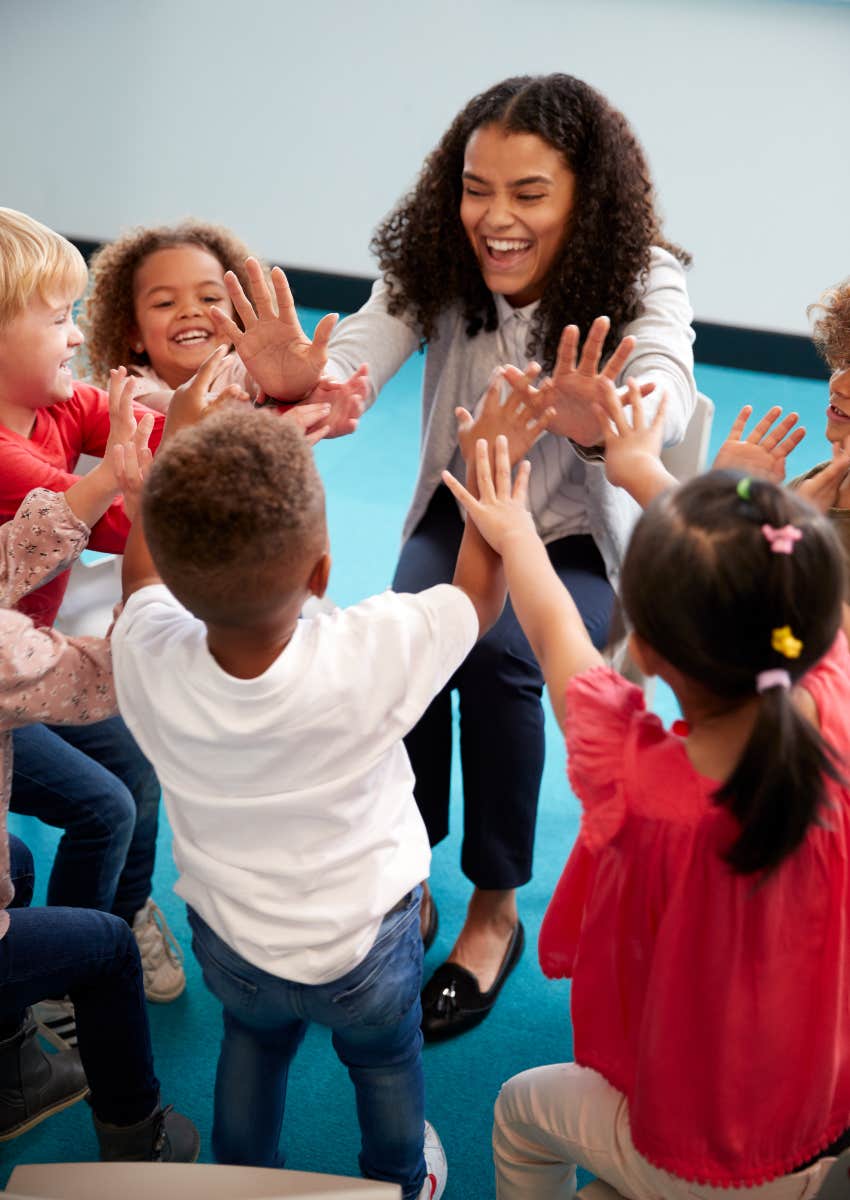Former Teacher Explains Why She 'Highly Recommends' Parents Write Their Kids' Names On Communal School Supplies
It actually makes a lot of sense.
 Gorodenkoff / Shutterstock
Gorodenkoff / Shutterstock Back-to-school season is ramping up, and parents are helping their kids check off supply lists and fill their backpacks for the first day. Communal supplies are included on many kids' lists, and parents often debate about who should have the responsibility of providing these supplies for the classroom. However, one former teacher urged parents not only to encourage their kids to participate in the communal supply purchases but also to write their names on the communal supplies they bring in, and not for the reason you might think.
A former teacher shared her thoughts on why parents should write their kids' names on communal school supplies.
Tionna Marsh, a former educator, took to social media to explain why she believes parents should be writing their child's name on the communal supplies they bring to school. She says, "When the teacher goes to the community closet, we can all know who it came from."
 Mikhail Nilov | Pexels
Mikhail Nilov | Pexels
She gave an example, where a teacher could use it as a lesson by saying something like, "Johnny got us this new bottle of hand sanitizer. Everyone, say thank you, Johnny!" Marsh stressed that this makes a child feel appreciated and teaches them to recognize what it feels like to contribute as a member of a community.
Crediting kids with the supplies they provided teaches them how good it feels to contribute.
Marsh's perspective took what many people viewed as a negative back-to-school requirement and turned it into a positive learning experience. It's no secret that parents in recent years have complained often and loudly about contributing to classroom supplies, but the irony is that no one seems to have a viable solution.
Charter school founder Julie Lause explained that what's actually going on is that parents don't understand why communal supplies exist in the first place. She wrote, "If we kept personal supplies in our desk 20 years ago, we might think that’s how our kids’ school works. But our memories may be misleading: We may have forgotten that the classroom we went to each day was fully stocked with essentials." She added, "Those Hello Kitty erasers were not 'mission critical.' They were fun and precious to us, but the teacher stocked glue sticks and construction paper. Our parents likely weren’t being asked to send in those necessary supplies for the whole year like schools ask parents to do now."
The fact is, school funding has changed, and the overfilled supply closet in each classroom has become a thing of the past. Instead, if teachers want markers or even tissues, those are luxuries that they have to buy themselves. In the end, parents who refuse to participate or complain are only hurting their own kids and their teachers. It's really no wonder that teachers are leaving the profession in droves.
Some commenters on Marsh's video appreciated her take and celebrated the idea. "I love this take on it!!! Yes!! What’s the problem with contributing to a community?!? This is why we [are] all struggling cause they got us out here fighting over scraps and making our neighbors our competition/enemy."
Other teachers shared similar experiences with their own classes, with another user writing, "My class LOVED when we celebrated them for new tissues, soap, or sanitizer!!"
Some worry that there may be low-income kids who aren't able to afford communal supplies and won't receive any recognition; however, parents and teachers said they're more than willing to step up to help. A third user added, "And for the families that cannot contribute, I write their name on one I’m providing so no one feels left out."
Communal school supplies have become a controversial topic in recent years.
Right before kids go back to school in the fall, they usually receive some kind of list that tells them how many pencils, notebooks, folders, and other supplies to buy for the upcoming year. Often, these lists also include larger requests like disinfecting wipes, tissues, and a dozen glue sticks (who could possibly need that much glue?)
 Monkey Business Images | Shutterstock
Monkey Business Images | Shutterstock
These items are used for the entire class and help benefit children whose families can't afford to buy all of their supplies. However, not all parents agree with this approach. They argue that they spend plenty of money to buy nice, personalized supplies for their own kids and don't want those items shared with other kids.
Though this is understandable, teachers say that it's necessary for the good of the school community. Teachers can't be expected to front the costs of supplies themselves, but all children need these items to succeed at school. School budgets are stripped, and that means there are no funds for the supplies we all took for granted in our early school years.
The students who are being helped aren't nameless faces. These are your children's friends. They are the community. It's easy to point the finger at what is wrong with the current system, but if you can't offer a solution, why not offer a glimmer of hope and a lesson in caring? Teach your kids how great it feels to help others, and how important it is to look outside your personal desires for the greater good.
Kayla Asbach is a writer currently working on her bachelor's degree at the University of Central Florida. She covers relationships, psychology, self-help, pop culture, and human interest topics.

